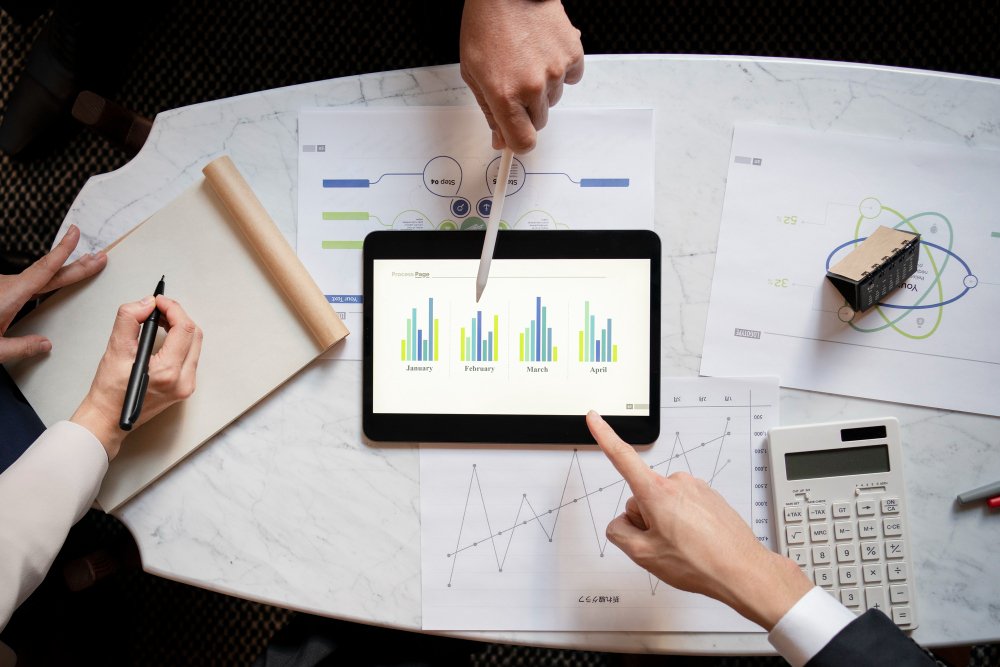In managing SMEs, the term budget vs forecast is more than just a simple financial comparison. With small businesses generating 43.5% of the U.S. GDP, supporting 45.9% of private sector jobs, and making up 97.2% of all enterprises, it’s clear that understanding financial tools like these is essential to preserving their impact and pushing progress forward.
Knowing when and how to use each tool can boost both confidence and performance. A budget sets a target based on what you expect to happen, while a forecast adjusts according to what’s actually happening. As a result, they work best when used together, not in isolation.
Key Takeaways
- Budgets define goals; forecasts adjust based on actual performance.
- Forecasts enhance flexibility; budgets provide financial discipline.
- Using both improves planning, strategy, and financial visibility.
A Glimpse of Budget vs Forecast for SMEs
As a small business owner, take a quick look at the budget and forecast meaning to plan smarter, manage cash flow, and adapt effectively to business changes.
What Is a Budget?
A budget outlines planned income and expenses over a set period, usually a year. It helps small businesses control spending and allocate resources wisely. In addition, it acts as a benchmark to measure actual performance. Therefore, budgeting promotes financial discipline from the start.
Budgets include estimated revenue, expenses, and cash flow based on goals or past trends. As a result, they provide structure and guide daily decisions. However, they remain fixed and can’t adjust to real-time changes. That’s why forecasts are essential for flexibility.
What Is a Forecast?
A forecast, by contrast, is a flexible tool that estimates future income and expenses using current and past data. It is regularly updated monthly or quarterly to reflect actual performance. Therefore, it helps businesses stay responsive in changing conditions. As a result, forecasting supports quicker, data-driven decisions.
Forecasts are used to predict sales, manage cash flow, and adjust strategies in real time. Unlike budgets, they don’t control spending but guide action as things unfold. In the same way a GPS adapts to traffic, a forecast adapts to business shifts. Meanwhile, the budget sets the overall direction.
Also Read: Why Is Branding Important: A Key to Improving Business
What Is the Difference Between Budget and Forecast?
When comparing budget vs forecast, it’s crucial to understand how these tools serve different purposes. Though they may seem similar, the differences between them lie in their intent, flexibility, and frequency. Below is the explanation in table format.
| Feature | Budget | Forecast |
| Purpose | Plan future performance | Predict future outcomes |
| Basis | Strategic goals or targets | Actual historical data |
| Flexibility | Fixed or semi-fixed | Highly adaptable |
| Frequency | Annual or quarterly | Monthly or rolling updates |
While a budget sets expectations, a forecast helps you adjust those expectations. For small business owners, using both together is critical to staying both goal-focused and agile in the face of market changes.
Also Read: Must Try! 10 Most Credible Business Process Mapping Tools
Why Both Budget and Forecast Matter
Combining budget & forecast helps SMEs plan smarter, stay flexible, and grow. Here’s how they work together effectively.
1. Gain a Full Financial Picture
Using only a budget or a forecast can lead to blind spots. However, when combined, they offer both a clear plan and real-time feedback by helping SMEs track progress and adjust as needed.
2. Improve Decision-Making in Real Time
A forecast detects changes quickly, such as a sales dip, so businesses can respond by cutting costs even if the budget stays the same. This agility strengthens financial control.
3. Boost Efficiency with Integrated Tools
Modern software platforms allow SMEs to sync budget and forecast tools, reducing errors and speeding up analysis. Thus, real-time dashboards make planning more proactive and less reactive.
Also Read: Guide on How To Start A Lawn Care Business for Beginners
When to Use a Budget vs a Forecast
Use a budget at the beginning of the fiscal year to set strategic direction, define limits, and guide teams toward financial goals. It’s best suited for goal setting, expense control, and long-term planning. Budgets are especially useful when securing funding or presenting financial plans to investors or stakeholders.
A forecast is good for responding to short-term changes. Use it when sales trends shift, customer demand fluctuates, or unexpected expenses arise. It helps with tactical decision-making, such as adjusting marketing spend, hiring plans, or inventory orders. While a budget holds the vision, the forecast keeps it grounded in current realities.
Tips for SMEs to Build Strong Budgets and Forecasts
Besides digging more into budget vs forecast, we also provide three practical tips SMEs can follow to build more effective budgets and forecasts.
- Start simple by using clear income and expense categories, and base projections on realistic and updated data.
- Review forecasts monthly to spot gaps with your budget, then adjust strategies or spending as needed.
- Track key KPIs alongside your budget and forecast to understand performance and make the right decisions.
Also Read: What Is A Brand Promise: Definition, Examples, and Hacks
It’s Time to Rethink Budget vs Forecast for Real Business Growth
In summary, budget vs forecast isn’t an either-or decision; it’s a powerful combination when used the right way. While a budget sets direction, a forecast keeps you aware of changing conditions. Together, they offer structure and flexibility. Therefore, SMEs can plan smarter and respond faster.And just like financial tools shape strategy, the thoughtfully crafted fonts from Letterara Studio can shape perception and elevate your graphic design. We offer a wide range of fonts, flexible licensing options, and ongoing sales you won’t want to miss. Now’s the perfect time to explore what Letterara Studio has to offer before the deals disappear.

